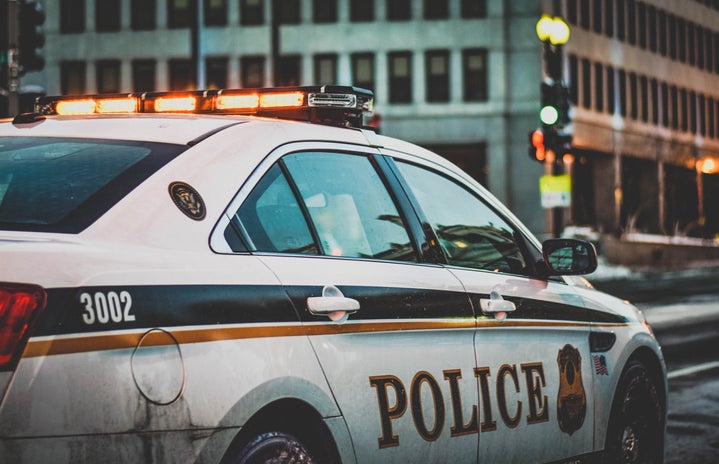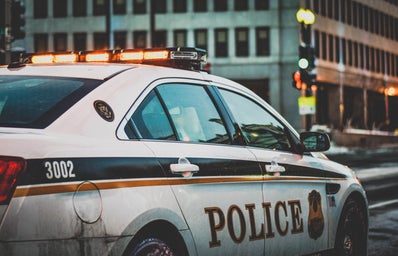There’s no doubt that the police have been a huge presence in the news lately. Being a woman of color in America, it is expected for me to have a strong adversity to the police, and I used to. Since coming to the University of Maine, I have made three close friends with aspirations of becoming police officers, with one having recently graduated from the academy. I feel strongly that it should be normalized to change one’s mind once learning new, or updated information.
Police officers are a necessity to defend and protect the people in America. They hold significant power, with the primary objective to defend citizens and ensure overall safety. They are one of the only professions, who has to show up every day wearing a bulletproof vest knowing that they are risking their lives.
There has been an increase in tragic, excessive use of force situations towards people of color, more specifically African Americans, by police officers within the past ten years. Trayvon Martin, George Floyd and Breonna Taylor, are a few of the many victims whose lives were cut short due to wrongdoing by an officer. These deaths have been continuously highlighted by the media, and emphasize the fact that there were not enough consequences for the officers.
The names of victims have been very prominent during the Black Lives Matter (BLM) movement, which began in 2013. BLM promotes protests against police brutality towards the black community. In addition to this movement, people have been taking anti-police rhetoric and hate speech towards the police to a new level.
There is no denying that the officers who brutally murdered the black victims are to blame for the negligence. However, as a result of the BLM movement and these deaths, there has been continuous hate speech and stereotyping to generalize all police officers. The BLM movement takes form in protests where people gather in unity, often with signs displaying slanderous messages towards the police.
A spin off to the BLM movement is ‘abolish/defund the police,’ where proponents seek to radically change policing as we know it. By decreasing the police funds, protesters strive to reallocate money towards social workers and community-oriented programs. While from the surface these ideas sound intriguing, sending untrained individuals into dangerous situations could do more harm than good.
Another proposed suggestion regarding police reform is unarming officers and replacing them with social workers to send in domestic violence situations. Although this suggestion may seem as though it may minimize harm, domestic violence responses are some of the most dangerous situations that officers are put in. “Making it Safer: A Study of Law Enforcement Fatalities Between 2010-2016,” written by Nick Breul and Desiree Luongo highlights officer fatalities and injuries by exploring specific cases. Bruel and Luongo provide the statistic of “41% of officers’ line of duty deaths are related to domestic violence cases” (Bruel and Luongocops).
It is important to remember, especially those who are going against the police, how quickly they are forced to make decisions. Officers make decisions in the heat of the moment regarding life or death, with the objective to protect.
Examples of signs that are held at protests read slogans such as, “Abolish the police”, “FUCK 12”, “Cops are PIGS”, and a common one, “ACAB” which stands for ‘all cops are bastards.’ Due to every American’s right under the United States Constitution, this form of discrimination is allowable due to the provision of the First Amendment. The freedom of speech protects all those who feel as though the police should not exist, and choose to protest against them.
In an interview with my friend, who is an officer in Massachusetts, she explains the personal impact that discrimination and hurtful speech has on officers. She emphasized how she signed up to be an officer with the objective of helping members of her community. She recognized that police officers are not everyone’s favorite, but at the same time feels the repercussions of hateful statements and speech towards officers. When asked about the discrimination towards officers, she stated, “ACAB hits cops hard. Such a sad thing to hear when you’re an officer that signed up to help people and to give my own to save them if needed.” The opposite perspective from an officer is important to keep in mind before making generalizations.
Terms and slogans such as “ACAB” correlate with the ideology of the marketplace of ideas. Americans have the right to express their distaste for the police, and even can go as far as to say they shouldn’t exist [hence, abolishment]. On the contrary, from the perspective of an officer, it is unjust and discriminatory against a profession meant to serve its community. Officers are responding to calls and show up to help anyone and everyone, even if they have a strong distaste for the officers’ honorable position.
Sources:
Breul, Nick, and Desiree Luongocops.usdoj.gov/RIC/Publications/cops-w0858-pub.pdf. Making It Safer: A Study of Law Enforcement Fatalities Between 2010-2016. Dec. 2017, cops.usdoj.gov/RIC/Publications/cops-w0858-pub.pdf.


